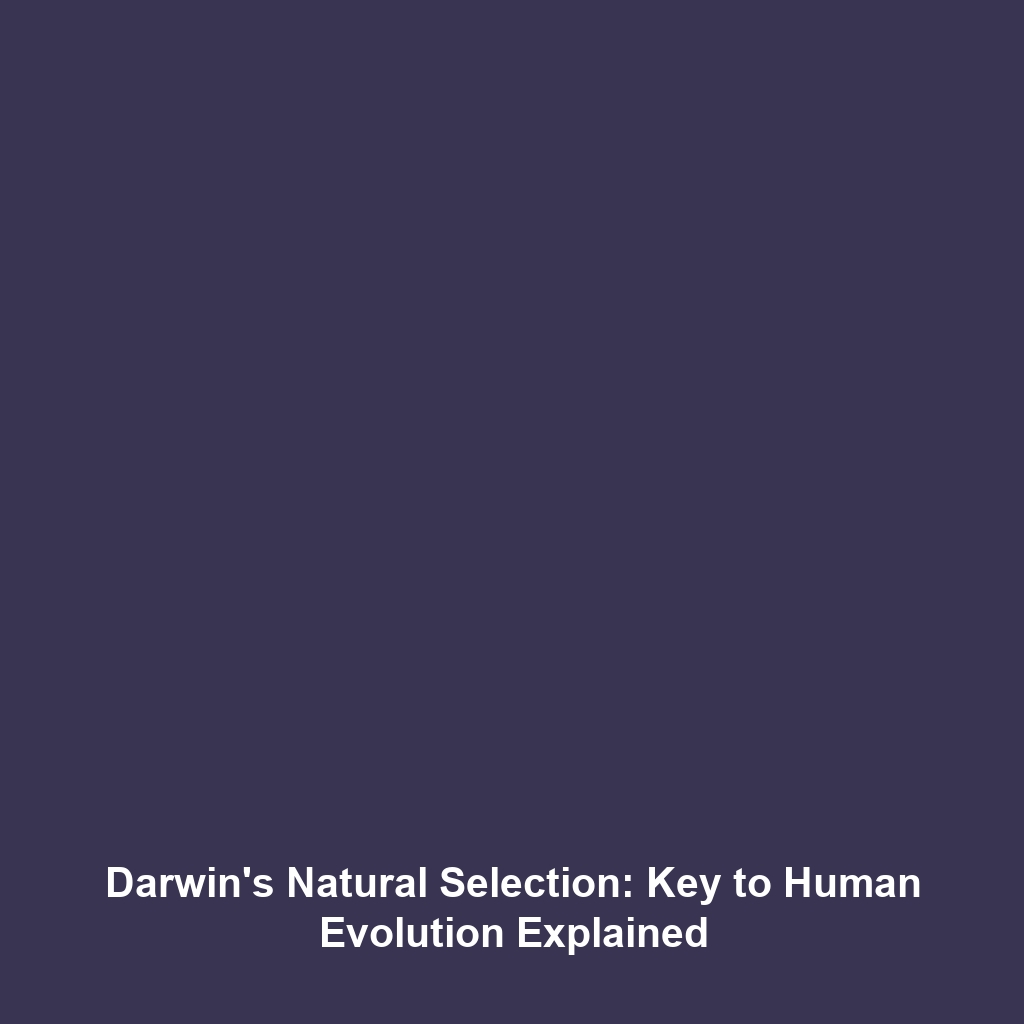Charles Darwin’s Theory: The Foundation of Natural Selection in Human Evolution
Introduction: Charles Darwin’s theory of natural selection is a cornerstone of biological science and has profound implications for understanding human evolution. It posits that organisms that are better suited to their environments are more likely to survive and reproduce, thereby passing advantageous traits to future generations. This theory not only enriches our grasp of biodiversity but also elucidates the evolutionary pathways that humans have taken over millions of years. Understanding Darwin’s ideas is fundamental for grasping the origins of humanity and our place in the natural world.
Key Concepts of Darwin’s Theory
The key principles of Darwin’s theory encompass several interconnected concepts that are crucial in the study of human evolution:
- Variation: Within any given population, individuals exhibit variation in their traits, which can affect their survival and reproduction.
- Competition: Organisms must compete for limited resources, and those with beneficial traits have a higher chance of survival.
- Survival of the Fittest: This phrase captures the essence of natural selection, where fittest refers to those best adapted to their environment.
- Reproduction: Individuals that survive to adulthood are more likely to reproduce and pass on advantageous traits to the next generation.
Applications and Real-World Uses
Charles Darwin’s theory extends beyond a theoretical framework and into practical applications within the context of human evolution:
- Conservation Biology: Natural selection principles guide conservation efforts, helping to protect species at risk of extinction.
- Medicine: Understanding evolutionary processes is crucial in areas such as antibiotic resistance and vaccine development.
- Forensic Science: Evolutionary biology techniques are applied in solving crimes through the study of genetic relatedness and ancestry.
Current Challenges in Understanding Darwin’s Theory
Despite its foundational status, several challenges persist in applying Darwin’s theory to the study of human evolution:
- Complexity of Traits: The genetic basis of many human traits is complex and influenced by environmental factors, complicating the identification of advantageous traits.
- Misinterpretations: The mischaracterization of ‘survival of the fittest’ can lead to misunderstanding regarding its implications for human society.
- Ethical Implications: Discussions on eugenics and the application of natural selection principles raise significant ethical concerns.
Future Research and Innovations
Innovations in genetics and biotechnology are paving the way for exciting developments related to Darwin’s theory:
- Gene Editing: Technologies like CRISPR may allow more targeted studies of evolutionary adaptations in humans.
- Genomic Studies: Advancements in sequencing technology offer deeper insights into human ancestry and evolutionary history.
- Computational Biology: This field is increasingly used to model evolutionary processes, providing predictions about future evolutionary changes.
Conclusion
Charles Darwin’s theory of natural selection remains a vital framework for understanding human evolution. It not only explains the adaptive nature of human traits over time but also informs contemporary scientific practices. As we move forward, engaging with these theories will enhance our comprehension of both humanity’s past and its future. For further exploration, check out our articles on evolutionary biology and ethical implications of evolution.
